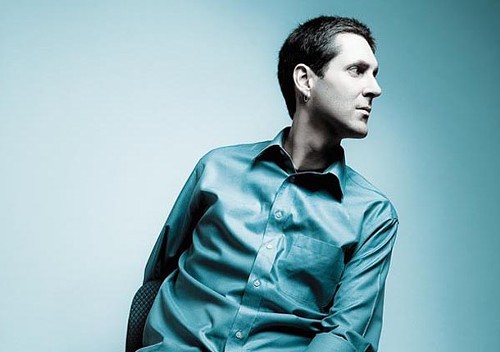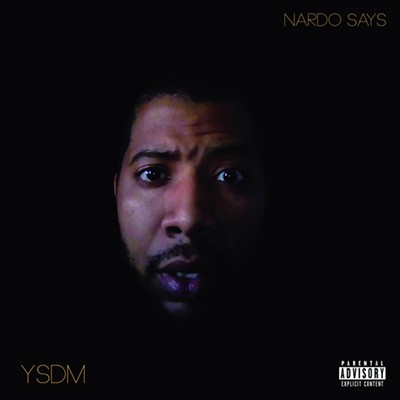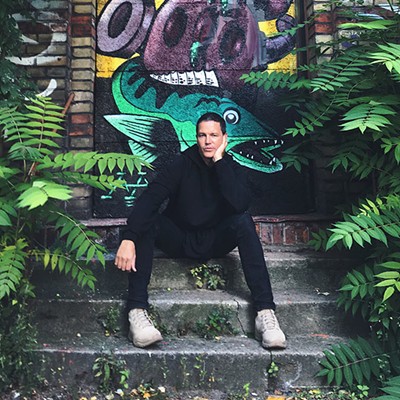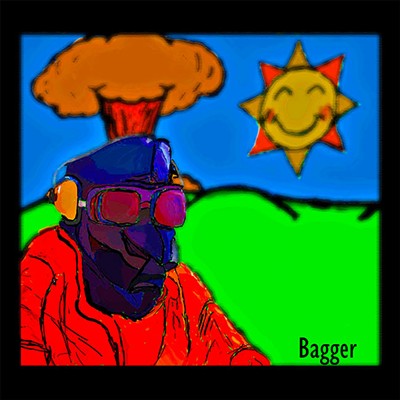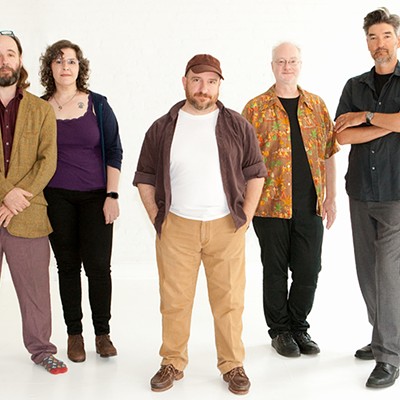Sunday, January 29, 2012
On the Record with Nicolay: Extended Interview
We spoke with Nicolay, a Grammy-nominated producer and instrumentalist and one half of the duo Foreign Exchange, in advance of his show at Shadow Lounge Tuesday.
I’ve read that you’ve worked with guitarist Chris Berner through your Foreign Exchange project, and in that project you were making more hip-hop and electronic stuff. This EP sounds a lot more classic, like you can lounge to it, whereas Foreign Exchange stuff kinda makes you wanna hit the dance floor. Can you tell me a little bit about how this EP came to fruition? What drove you, personally, into this smooth jazz sound?
I’ve always been a very big jazz fan. You can definitely also hear that in a lot of the Foreign Exchange records. But it never really went beyond being an influence. I’ve always dreamed of doing an actual “jazz” project, but not really claiming it to be jazz as much as it is just my interpretation of it. As you say, I’ve really tried to come up with a very classic sound where everything is played on actual instruments. There’s no sequencing or computers or any of that stuff involved. In a lot of ways it was about a desire for me to further challenge myself and really look for depth in a direction we don’t normally go in.
I know that you’re a classically trained musician; was jazz a large part of that education?
Not really. I’ve studied music in general, both in terms of the theory of it as well as to practice actual composition and playing. And with jazz it’s always been something I’ve been very familiar with never truly dabbled in it. I don’t really see myself as a “jazz musician,” and I would never really claim that.
In general I like various genres. I like to sorta kinda give my take on it, whether it’s dance music or hip-hop or jazz. So it’s not something that I’ve really always done or have been taught to do. This is more just like me kinda bein’ like a rhinoceros in a porcelain cabinet. Just tryin’ to hold my own in front of people who actually are trained and are jazz musicians.
Can you tell me a little bit about the creative process and what it was like working with the Hot at Nights on this EP?
Well, it’s real cool because, as I said earlier, in a lot of ways it was very different from the record making process as we do with the Foreign Exchange — which is Phonte, my partner, and myself — and we, in reality, never collaborate at the same moment in the same room. It’s always just a back and forth of our, kind of 50% of the total puzzle. In this project it was actually 4 guys in a room set up with headphones and instruments and it was a very in-the-moment thing. We did it in one day.
The whole thing in one day?!
Yeah, I drove up to Durham and we unloaded the stuff and we checked the sound and we were off and we didn’t really stop until late, late. But it was still one day. It was really part of the challenge for us to not allow any of the luxuries you would normally have in the recording process: fixing mistakes, over-dubbing yourself. A lot of those things we felt it would be really cool if we were really put ourselves in the hands of the moment. Almost like as a Dogme, ya know, we wanted to do that and so it was honestly a great experience because you’re directly faced with the people who make the music at that moment. And so if things go wrong, they go wrong horribly, but if they go right, they go right in a way that you can’t predict up front. You can’t rehearse for that; those are improvisational moments that come together right there. That’s why I love the project, more than anything.
That’s kind of a blind process there. Like you said, you don’t see the other musician face-to-face. Do you think that that takes away? Do you think that there’s a little bit more humanness to creating music live as opposed to sending it over e-mail back-and-forth?
I actually have the theory that it’s the other way around. That because we’re not in the same room together we’re not faced with the same sort of inhibitions that people have when they make music together. Even the most gifted and talented know about just inhibitions. I feel strongly that when Phonte and myself, for instance, create a song, we’re really able to put 100% of ourselves into it rather than have to come up with a sort of compromise or any sort of collaborative process because we’re in the same room. The result, I think the music actually has a passion to it that you wouldn’t really get if you were in the same room. For instance if you say 'I’m gonna write this song and really put myself out there but there’s another dude in the room who’s lookin’ and if I put this out he’s gonna laugh at me,' or whatever. That’s not a factor in our working process and I think it has honestly helped us more than it has hindered us.
Your bio notes that your influences range from Stevie Wonder to Neil Young and we’ve already talked about your classical background and your hip-hop and R&B work; so you’re coming at music-making with so many different sounds in your repertoire. I’m curious: When you’re making an album do you hunker down in your studio and surround yourself with particular records or artists?
It’s not something that we predestined, if you will, before we start a new project. I think that every project that I do or we do in a group setting, they’re all kind of portraits of us in moments in time. There’s a lot of times where you’ll find yourselves particularly influenced by one artist or one sub-style of music or even genre. For instance, when Phonte and myself worked on Authenticity, both of us listened to lots of Neil Young and James Taylor and stuff like that and really wanted to encapsulate that whole 70’s singer-songwriter directness approach of just the song, very stripped down I guess that’s something that we admire about music like that. If you just strip it down to the bare essentials the song is still there.
At moments in time like that we do really listen to certain stuff over and over again and really take away what we feel is something we could use without making style copies or do something that is “throwback.”
Going back into the conversation that we edged into about communicating over the Internet and creating an album that way, you made your first album “Connected” in ’04. That’s a while ago in Internet years. That way of making music is ubiquitous these days. I know so many artists who collaborate with others who live across the country and they do so very easily. Would you say that the Internet has bolstered the quality of work out there or just kind of created a cacophony of too much going on?
I think it’s done both; it’s such a wide broad scope that includes people who would not be in the traditional music industry model and that includes a lot of good and bad. Not only the Internet but computers getting faster and faster and the music technology that came with that, like having a whole studio in a laptop, those kind of things. Obviously they made the threshold that was already like the big speed bump, you had to have money or a label. Especially to be able to record and to record something that would stand up against other stuff. If you’re creative and tech-savvy you can push your stuff further than you could like when we did that first album ‘Cause at that time there wasn’t really anything like Gmail, definitely not Facebook and Twitter, so we kind of pushed it in an “old-fashioned way”: instant messenger and e-mail. Even though I don’t think by any means we were the first, we were definitely in a group of the firsts to complete entire records without ever meeting each other face-to-face. Nowadays that is pretty much how it all works.
NICOLAY with THE HOT AT NIGHTS. 8 p.m. Tue., Jan. 31. Shadow Lounge, 5972 Baum Blvd., East Liberty. $12. 412-363-8277 or shadowlounge.net
Tags: Nicolay , Foreign Exchange , FFW>> , Image


